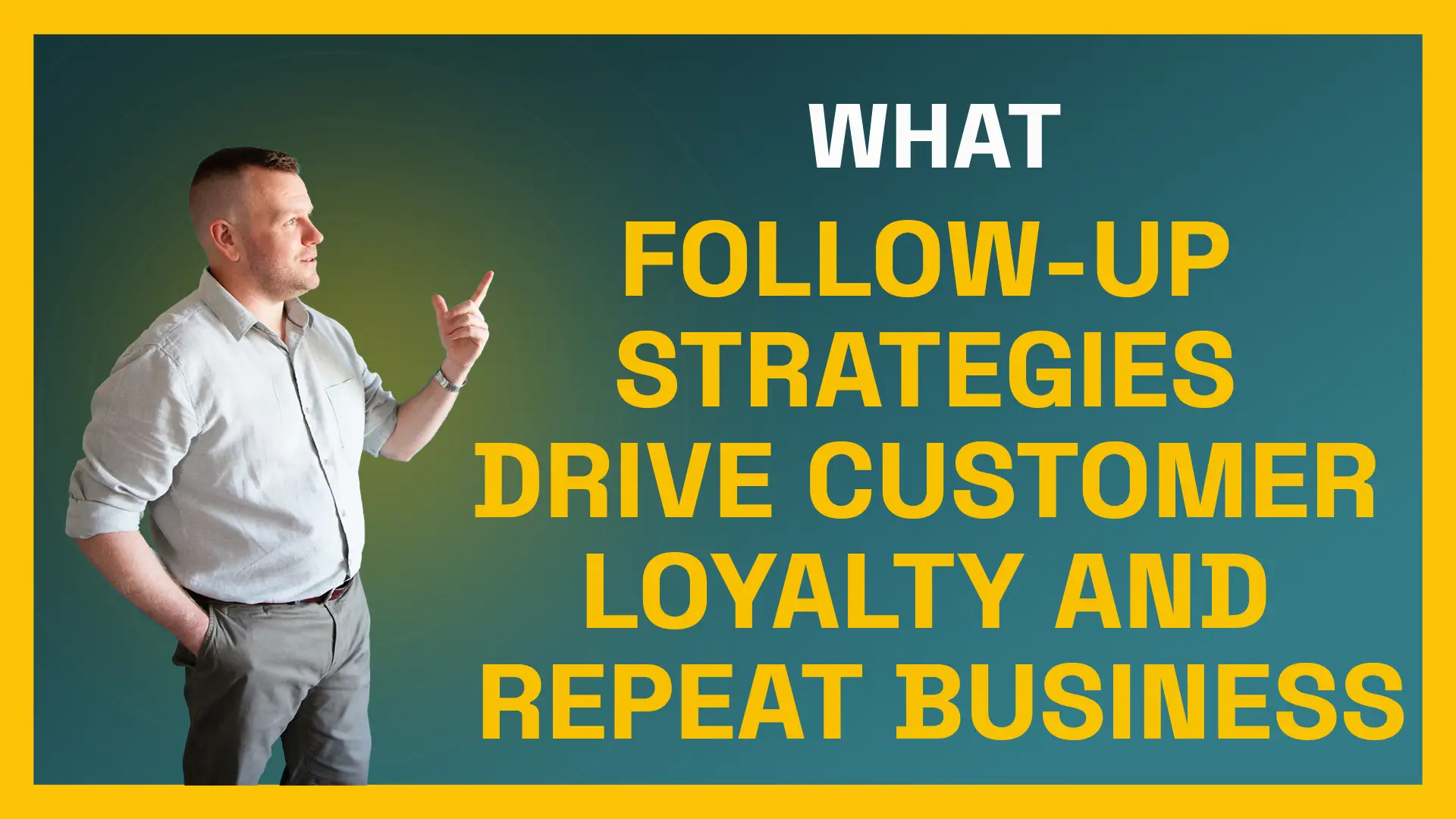
The Value of Effective Follow-Up
Follow-up communication is essential for several reasons:
- Ensures Satisfaction: Checking in after a job lets the customer know you care about the quality of your work and their satisfaction. A study by Microsoft shows that 96% of consumers say customer service is important in their choice of loyalty to a brand.
- Encourages Repeat Business: By maintaining contact, you keep your business top of mind for customers when they need additional services in the future.
- Facilitates Feedback and Improvements: Follow-ups are a great opportunity to gather feedback, which can provide valuable insights into areas for improvement and customer needs.
Effective Follow-Up Techniques for Tradies
- Thank-You Notes: Send a personalised thank-you note or email shortly after completing a job. This simple gesture can make a big difference in how customers perceive your business.
- Customer Satisfaction Surveys: Implement a short survey to gather feedback about the customer’s experience. Keep it brief and to the point to increase the likelihood of responses.
- Reminder Services: For services that require periodic maintenance, setting up a reminder service can be extremely beneficial. This shows foresight and consideration for customer needs.
- Exclusive Offers: Provide returning customers with special offers or discounts as a token of appreciation for their business. This can also encourage repeat business and loyalty.
- Educational Content: Share helpful tips or relevant content that adds value beyond the initial service. For example, periodic emails with maintenance tips or new service offerings can keep your customers engaged.
- Social Media Engagement: Regular updates on social media can help keep your business in customers’ minds. Encourage customers to follow your pages for useful information and updates.
Implementing a Follow-Up Strategy
Here are some steps to implement a successful follow-up strategy:
- Automate Where Possible: Use automated tools to send thank-you emails, satisfaction surveys, and reminders for future services. Automation ensures consistency and reduces the workload, allowing you to maintain regular contact without significant effort.
- Personalise Your Communications: Address customers by name and reference specific aspects of the job where possible. Personalised communication enhances the customer’s connection to your business.
- Schedule Follow-Ups: Create a schedule for different types of follow-up activities. For instance, a thank-you message might go out immediately after service completion, a feedback request after one week, and a maintenance reminder every six months.
- Evaluate and Adapt: Regularly review the effectiveness of your follow-up efforts. Look at customer responses, feedback, and repeat business rates to determine what’s working and what might need adjusting.
In Summary
Effective follow-up is a powerful tool for building lasting relationships with customers. It shows that you value their business and are committed to providing ongoing value, significantly increasing the chances of repeat business and referrals. By incorporating these follow-up strategies, tradies can enhance customer loyalty and drive business growth, ensuring they remain a step ahead in the competitive trades industry.
